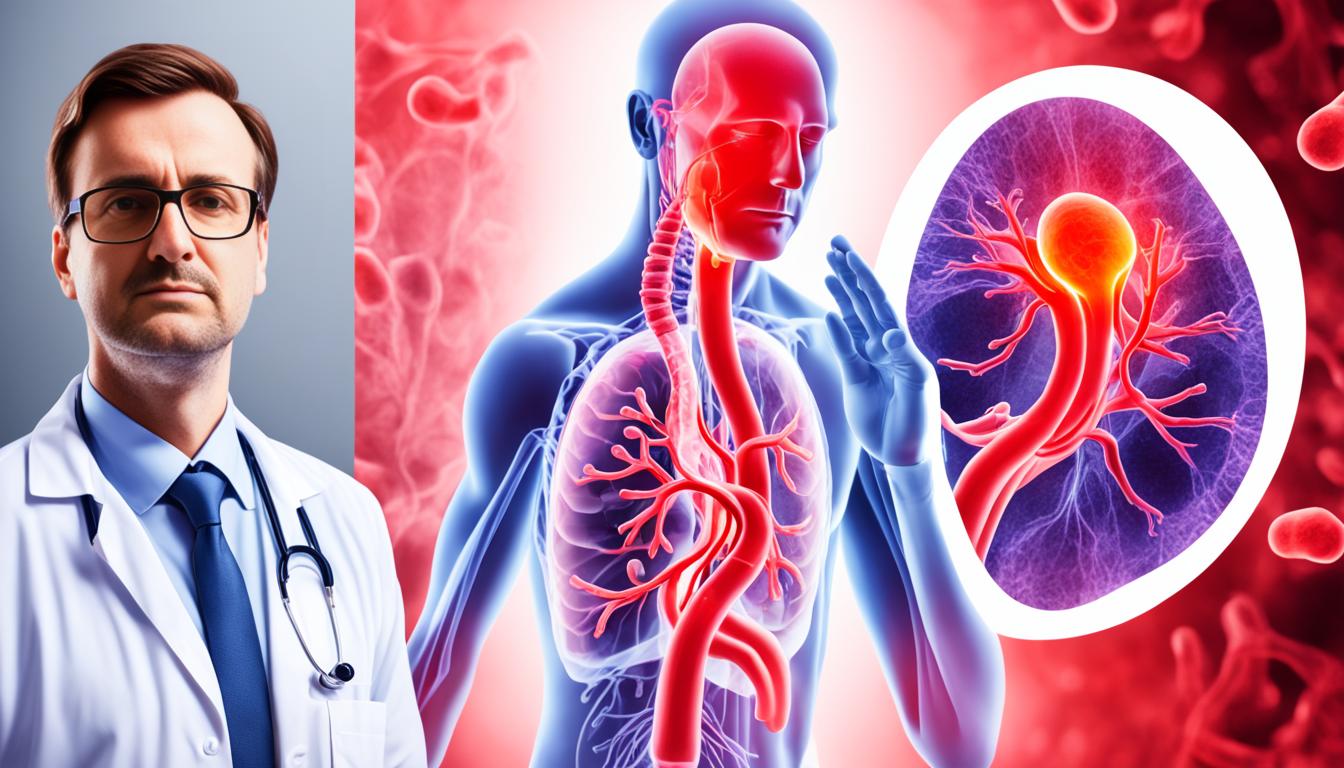End stage kidney failure, also known as renal failure, happens when a person’s kidneys can’t work at full capacity. Often caused by diabetes or high blood pressure, it leads to a build-up of waste and fluid in the body.
Signs of this condition can include trouble with urination and unusual urine appearance. People might also feel less hungry, more tired, or see swelling in their hands and feet. Controlling blood pressure and managing anemia could become hard.
To confirm end stage kidney failure, doctors rely on urinalysis and blood tests to check how the kidneys filter waste. Imaging tests like ultrasounds and CT scans help see the kidneys’ condition.
Treating this problem can involve dialysis or a kidney transplant. Dialysis helps clean the blood outside the body when the kidneys can’t. This process can happen through hemodialysis using a machine or peritoneal dialysis, which filters blood within the body.
Receiving a new kidney from a donor through a transplant is another option. It can boost life quality for those with this disease. But, finding the right donor and avoiding rejection are significant challenges.
Although in early stages, stem cell therapy offers hope. It works by using stem cells to repair damaged kidneys. This approach could lead to improved outcomes for those with this health issue.
Key Takeaways:
- End stage kidney failure can happen when the kidneys lose proper function.
- Conditions like diabetes and high blood pressure are major causes.
- Symptoms can include issues with urination, fatigue, and swelling.
- Tests like urinalysis and blood work help in the diagnosis.
- Dialysis, transplant, and stem cell therapy are the main treatment options.
Symptoms and Causes of End Stage Kidney Failure
End stage kidney failure is when the kidneys can no longer work well. It’s a severe condition, also called renal failure or chronic kidney disease. At this point, symptoms get worse, affecting life greatly.
Symptoms of End Stage Kidney Failure
End stage kidney failure shows its worst symptoms later. People can show different signs, but many face:
- Changes in urination
- Loss of appetite
- Nausea and vomiting
- Fatigue and weakness
- Swelling in the ankles and feet
- High blood pressure
- Difficulty sleeping
- Headaches
- Muscle cramps
These symptoms really affect daily life. They might need medical help to manage.
Causes of End Stage Kidney Failure
Numerous reasons can lead to end stage kidney failure. The top ones are:
- Diabetes: Uncontrolled diabetes damages small kidney blood vessels.
- High blood pressure: Long-term high blood pressure harms the kidneys’ blood vessels. This affects the filtration of waste and fluid.
- Urinary tract obstruction: Blockages like kidney stones or an enlarged prostate can stop proper urine flow. This can hurt the kidneys.
- Genetic kidney diseases: Conditions like polycystic kidney disease make cysts grow in the kidneys. This over time leads to their failure.
- Glomerulonephritis: Inflammation of the kidney units that filter blood can mess with their work. This can lead to kidney failure.
- Recurrent kidney infections: Bad and repeated kidney infections can harm the kidneys permanently.
Knowing about the symptoms and causes of this stage is key. It helps in early detection and proper treatment. This can improve how people live with the condition.
Treatment Options and Outlook for End Stage Kidney Failure
End stage kidney failure comes with many treatment choices. These options work to manage the issue and help patients have a better future. The top choices are dialysis and kidney transplant.
Dialysis is key. It cleans the blood of waste and extra fluid. This is when the kidneys can’t do this on their own. Dialysis also keeps the body’s electrolytes just right and stops toxins from building up.
A kidney transplant swaps a bad kidney for a healthy one. This helps end stage kidney failure patients live normally again. Another treatment option being studied is stem cell therapy. It looks to fix kidney damage by growing new cells.
Finding the disease early and managing it well is very important. This means keeping blood sugar and blood pressure under control. Doing regular checks and following the treatment plan is crucial. This helps improve life for those with end stage kidney failure.

